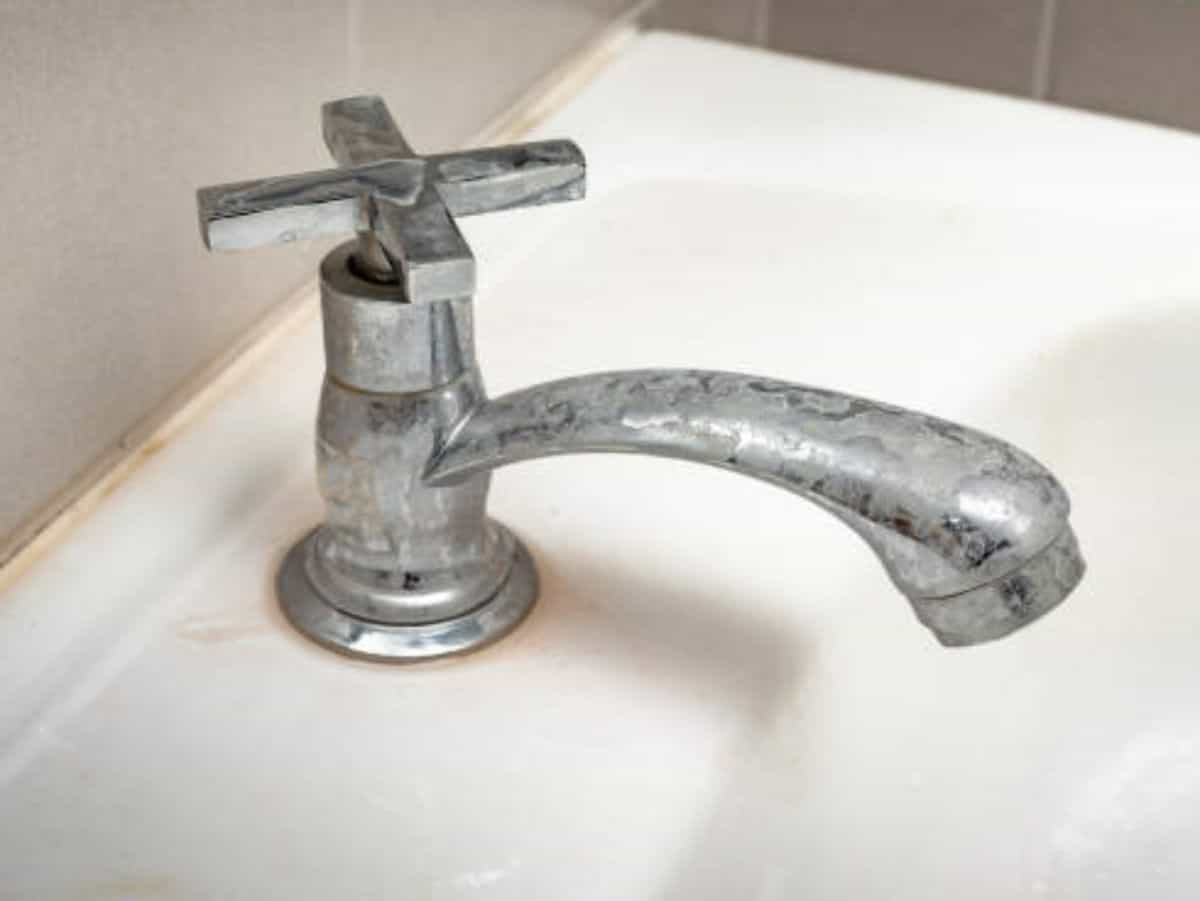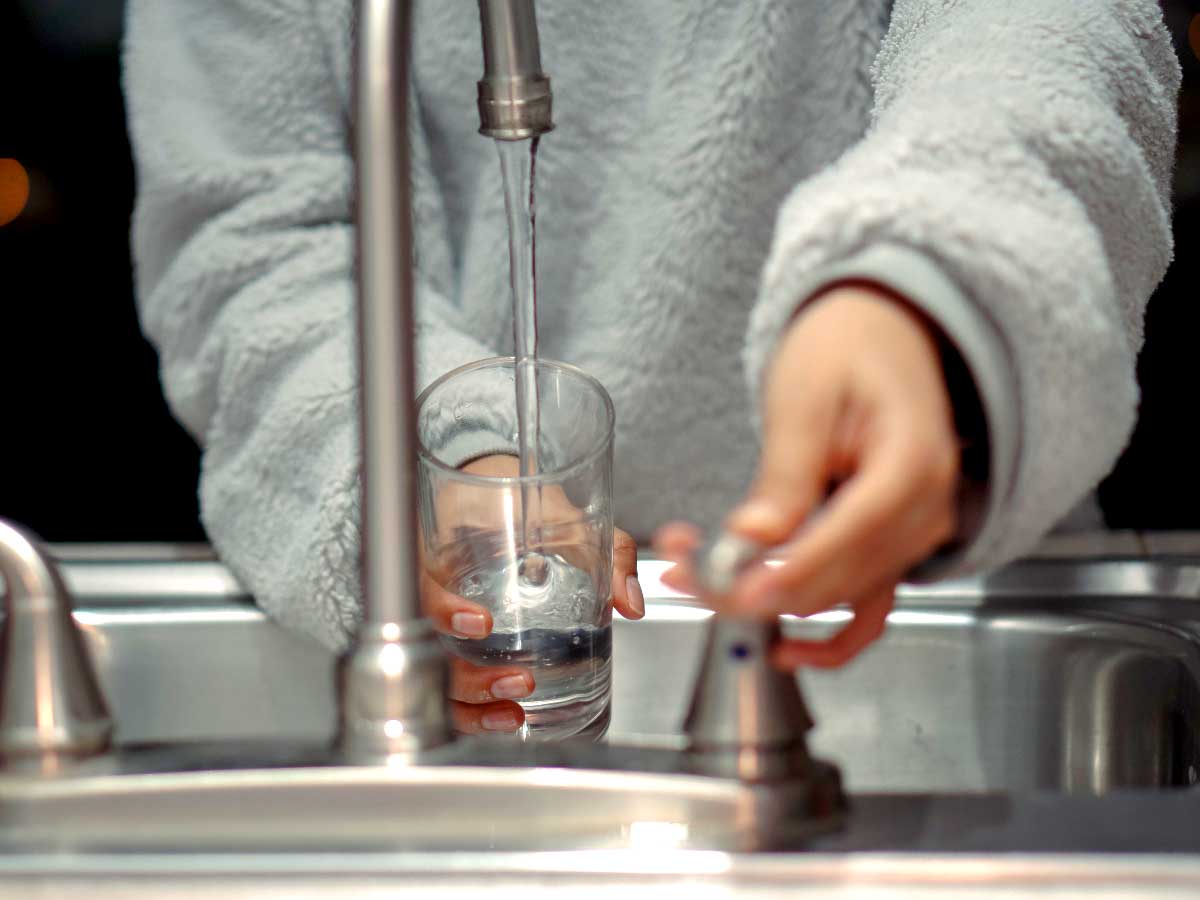Water is an essential part of our lives. It’s also vital in cooking, food preparation, sanitation and hygiene, and other home uses. The transparent, colorless, odorless liquid is categorized into two types. That is hard water and soft water. So, how do you distinguish hard water vs soft water?
While you can not distinguish between hard and soft water based on their touch and appearance or feel, they differ in mineral content. Hard water contains high levels of minerals, most notably calcium and magnesium. On the other hand, soft water removes these minerals either through a water treatment process or by adding a water softener. The presence of these minerals is what makes hard water “hard.”
Let’s look at hard water vs soft water: the main differences. Furthermore, we’ll discuss the symptoms of hard water that you should look out for and the negative sides of having hard water in your home.
Hard Water vs Soft Water: The Difference
As mentioned earlier, determining how hard or soft your water is depends on the number of minerals in it. A water softener can remove these minerals making the water soft. The hardness or softness of water is usually measured in grains per gallon(GPG). If the hardness level of water is more than 7 GPG, it’s considered hard water, while less than 7 GPG is soft water.
Below are the differences between hard and soft water:
Hard Water |
Soft Water |
|
| 1 | It has high mineral content. | Low mineral content |
| 2 | Less likely to form lather with soap | Forms lather easily with soap |
| 3 | Leaves a film on dishes and skin and causes a mineral build-up in pipes and appliances | It does not leave a film on dishes and skin and is less likely to cause mineral build-up in pipes and appliances. |
| 4 | It contains calcium and magnesium ions. | Contains sodium ions |
| 5 | It’s formed when water flows through limestone and chalk. | It’s formed when hard water passes over an ion exchange resin. |
| 6 | Hardness in water can be removed by boiling. | Boiling does not remove softness in the water. |
| 7 | Hard water includes spring water, most well water, mineral water, and most public water supplies. | Soft water includes snow, rain, distilled, deionized water, and reverse osmosis water |
| 8 | It has a characteristic taste. | It tends to taste flat or bland except for water from water softeners which taste salty. |
| 9 | Can discolor laundry and leave spots on dishes | Does not discolor laundry or leave spots in dishes |
| 10 | It can harm your hair and dry your skin. | Combats dryness |
| 11 | NIt is not suitable for heavy machinery and other home appliances | Suitable for heavy machinery and other home appliances |
Water containing more minerals can harm your home and affect the overall quality of water. However, there are effective water-softening solutions for your homes on the market. Water filtration systems can help you channel purified water into your homes.

Seven Signs That You Have Hard Water in Your Home
Hard water can wreak havoc on your clothes, pipes, and appliances. Its high mineral content can make tap water in your home taste funny, form build-ups in your shower, and make your skin feel dry. Most homeowners across the country live in areas that have hard water. And it can cause real problems. But how can you know if you have hard water in your home?
There is no definitive answer to this question. However, some telltale signs can help determine if you have hard water in your home. Well, the following are the telltale signs that you should look out for if you think you might have hard water issues:
1. Your Skin is Dry And Scaly
When you shower with hard water, soap residue is left since the water can not completely rinse all the soap off your skin. Your skin is therefore left dry and taut. Furthermore, hard water can make your skin itchy due to the high concentration of minerals. And if you’re suffering from eczema, your condition can worsen when you use hard water.
2. Your Water Has a Metallic Taste
If you notice that your drinking or tap water has a yucky metallic taste and smell, most likely, it’s hard water.
3. Your Hair Looks Less Than Ideal
Hard water can zap the moisture out of your hair, making it limp and lifeless. The water can make your hair look like you have not rinsed out all your shampoo or soap. Furthermore, hard water makes soap and shampoo less lathery. It, therefore, makes your bathing experience not pleasant.
4. Takes a Long Time to Fill a Glass of Water
Hard water forms build up not only on your faucets and showerheads but also inside your water pipes. Thus clogging them with mineral residues. The build-up causes your faucets and taps to run very slowly and extends the time it takes to fill a glass of water because of excess mineral deposits.
5. Your Appliances Wear Out Quickly
Hard water can wreak havoc on home appliances, including the dishwasher, ice maker in your fridge, and water heaters. Too much residue can make these appliances less efficient, leading to more extensive utilities in your home.
6. You Constantly Clean Up Soap or Scum
When hard water evaporates, it leaves whitish spots – calcium deposits. You will notice soap scum all over surfaces. Soap and hard water don’t get along nicely. That means you must constantly clean your bathroom and kitchen using different cleaning agents to remove soap scum.
7. You have Frequent Plumbing Problems
Hard water can cause corrosion and water pressure problems due to minerals that build up in your pipes and appliances. You’ll notice a reduction in water pressure in your faucets and showerheads. Also, hard water can compromise the efficiency of your washing machine.

The Negative Sides of Having Hard Water in Your Home
The primary purpose of water supplies is to protect human health and ensure access to adequate quantities of safe water for consumption. However, having hard water in our homes has its fair share of negative sides, such as causing residue build-up on fixtures and appliances. Hard water is different from soft water. You can quickly notice the distinctions between the two types if you know exactly what to look for. Over time, as you continually use hard water in your home, you’ll start experiencing the following problems:
Inefficiency in Your Appliances
The minerals in hard water can build up in your water pipes, faucets, and appliances over time. These minerals can lead to clogging and reduce the overall performance of your machines. When you have hard water in your home, you’ll start experiencing an upsurge in your home’s power and water bills. That is because your appliances work extra hard to perform the same tasks. Eventually, hard water problems lead to the breakdown of your appliances. Furthermore, their lifespan shortens, and much energy goes to waste.
Your Skin and Hair Become Dull
When you wash and bathe frequently with hard water, it leaves mineral residue in your hair and causes soap curd to build up on your skin. Ultimately, the soap curd makes your hair look dull, irritates your skin, and exacerbates eczema. Furthermore, hard water inhibits the lathering of soap and shampoo, preventing you from getting clean.
Makes Surfaces Look Unclean
Having hard water in your home makes cleaning things with soap and water difficult. It leaves the surfaces of sinks, bathtubs, and even dishes with soap curd. In some cases, hard water can cause acute health-related issues such as fatigue, diarrhea, and vomiting, among other problems. However, you can quickly fix all these problems by installing a water-softening system in your home.
Whole Home Water Filtration System: The Solution To Hard Water Problems
Now that you know all about hard water vs soft water, it’s worth noting that you can treat hard water with a water softener. The water filtration system filters out hard water minerals in your water through ion exchange. During the ion exchange process, water flows through the filter and passes over a resin bed. The resin traps calcium and magnesium, replacing them with sodium ions. A whole home water filtration system can address hard water problems in your homes. It purifies and cleans water, making it safe for washing, consumption, cleaning, and general home use.
At ONIT Home, we provide the best solutions for all types of water problems. We have the best whole-home water filtration systems, which negates hard water and supplies homeowners with safe, great-tasting water straight from the taps.
If you have a whole-house water filtration system, you can rest easy knowing that your home has safe and high-quality water. Our filtration systems remove contaminants that can cause harm to human beings and the environment. For more information about hard and soft water management, we have experts ready to help you. Call us today at 1-833-433-0331 to schedule a free consultation with one of our representatives. Anything about clean and safe water, we’ll be ONIT!



